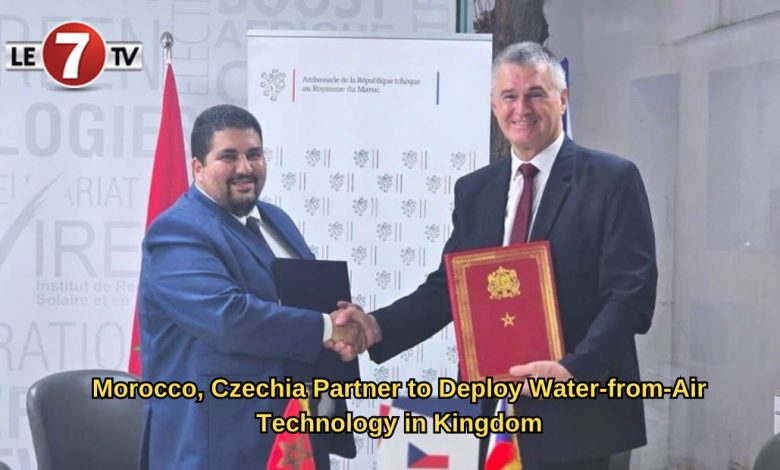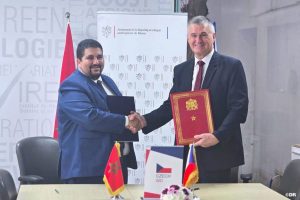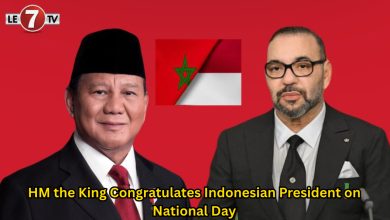Morocco, Czechia Partner to Deploy Water-from-Air Technology in Kingdom
Rabat - Morocco and the Czech Republic formalized a strategic agreement to support the deployment of atmospheric water generation (AWG) technology in the Kingdom on Tuesday in Rabat.


The agreement was signed by the Moroccan Institute for Research in Solar Energy and New Energies (IRESEN) and the Embassy of the Czech Republic to Morocco, acting on behalf of the Czech Ministry of Foreign Affairs of the Czech Republic through its CzechAid development cooperation program, according to a press release from IRESEN.
It includes the delivery and implementation of two pilot units by the Czech company CZECHOSLOVAK EXPORT a.s., the export agency and prime integrator of one of Europe’s leading industrial holdings Czechoslovak Group (CSG), selected as the executing partner of the project.
The initiative marks a concrete milestone in Moroccan–Czech bilateral cooperation and reflects a shared commitment to addressing climate-related challenges through sustainable technological innovation, says the same source.
Under the title “Water from Air Equipment for Morocco,” the project will deploy a low carbon atmospheric water generation (AWG) system designed to produce potable water directly from humidity in the air, offering a modular, decentralized, clean and resilient solution to water scarcity.
The system selected for the project is the patent-protected and award-winning Emergency Water from Air (EWA) portable solution developed by the University Center for Energy Efficient Buildings (UCEEB) of the Czech Technical University in Prague (CTU) and produced by the Czech manufacturer KARBOX s.r.o., also a CSG member firm.
The agreement is financed through a grant provided by the Czech Ministry of Foreign Affairs via CzechAid. It aims to deliver two pilot demonstrators to be tested under Morocco’s climatic conditions in order to assess its potential for broader deployment in remote and arid zones, in the country and the region.
This initiative directly contributes to the growing convergence between water security, innovative energy solutions, and both climate mitigation and adaptation, a nexus that lies at the heart of Morocco’s strategic priorities as outlined in its New Development Model.
By integrating cutting-edge atmospheric water generation into Morocco’s energy, industrial, and research ecosystems, the project serves as a pilot for future solutions that are not only technologically autonomous, but also environmentally resilient and socially inclusive.
In fact, large-scale deployment of such solutions may offer alternative opportunities to develop sustainable economic activities, such as agriculture, services, and industry, in remote areas with no access to seawater desalination. This, in turn, can strengthen resilience and reinforce strategic sovereignty across the African region.
In addition to its operational objectives, the project opens avenues for technology transfer, capacity building, and scientific collaboration between Moroccan and Czech public and private institutions. It also reflects the potential for future local industrial integration of clean technologies within Morocco’s green industrial ecosystem.
IRESEN Director General Samir Rachidi said that this partnership embodies a shared vision between Morocco and the Czech Republic to make science and innovation true levers for inclusive and sustainable development for our respective citizens.
For his part, Ladislav Škeřík, Ambassador of the Czech Republic to the Kingdom of Morocco expressed his pride in “supporting this high-impact project, which brings together Czech innovation and Moroccan expertise in a way that directly serves the people and the planet.”
The installation of the pilot units is scheduled for the fourth quarter of 2025, followed by a two-year phase of technical evaluation, data analysis, and market exploration.
Editorial team/le7tv





